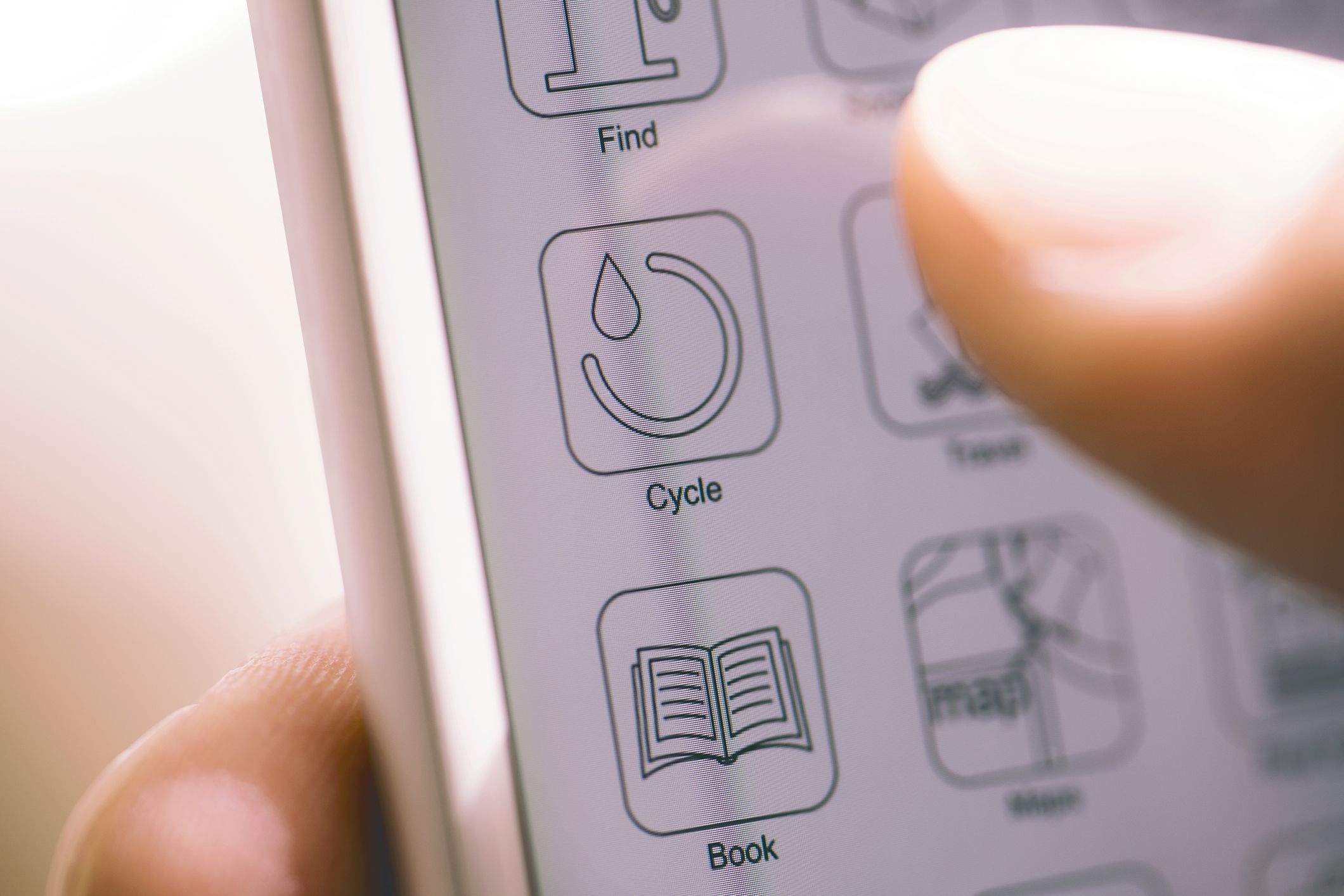Updated on August 17, 2023
If you have a uterus, you can expect to have around 450 menstrual cycles over the course of your lifetime. But your period—the few days of bleeding each month—is just one part of it.
Getting to know all the different phases of your cycle can not only help you with timing if you’re trying to get pregnant, but it can also tell you more about your overall health, such as whether you may be at risk for diabetes, heart disease or infertility.
We spoke with Colleen Cardella, MD, an OBGYN at Novant Health Randolph OBGYN in Charlotte, North Carolina, to learn about how the menstrual cycle works, why you might experience irregularities and when you should see a healthcare provider (HCP)—plus, why it’s a good idea to track your cycle.
What are the different phases of a cycle?
On average, an entire menstrual cycle lasts around 28 days, though it can range from 25 to 35 days or longer. Each cycle comprises two stages: The follicular phase is the time between day one of your period to right before ovulation; the luteal phase goes from ovulation to the start of your next period.
Here’s a closer look at what’s happening during a typical cycle:
Follicular phase: Those variations in menstrual cycle length, Dr. Cardella says, more often happen during your follicular phase. The first day of your menstrual cycle begins with menstrual bleeding, which usually lasts around five to eight days. During this part of the cycle, levels of estrogen and progesterone dip.
After menstrual bleeding has ended, estrogen levels rise steadily for the duration of the follicular phase, causing the lining of your uterus to thicken and prepare for a possible pregnancy.
During the first eight days of the follicular phase, your pituitary gland releases follicle stimulating hormone (FSH), which controls the menstrual cycle and the maturation of eggs. Several follicles—fluid-filled sacs containing an egg—develop on the ovaries. One follicle dominates, matures and releases an egg through a process called ovulation. This starts the luteal phase.
Luteal phase: With hormone levels increasing in the days before ovulation, you may experience a mood boost and a burst of energy. Ovulation occurs around day 14 when your estrogen level peaks, causing luteinizing hormone levels to surge and releasing a mature egg. Over the next week, the egg travels through one of your fallopian tubes, which connect the ovaries to the uterus. The follicle that produced the egg turns into the corpus luteum, a temporary tissue that produces progesterone which supports the egg, if it becomes fertilized, and prepares the uterus for implantation.
Having intercourse or going through artificial insemination (when an HCP inserts sperm directly into the cervix or uterus) in the days surrounding ovulation increases the chances of pregnancy. During this time, sperm—the male reproductive cell—has the best opportunity to fertilize, or join with an egg, as it travels to the uterus. Sperm can live in the female reproductive tract for 3 to 5 days. A mature egg, meanwhile, only stays alive for 12 to 24 hours after ovulation.
“If your goal is pregnancy, I usually say to start having intercourse daily or every other day around days 12 through 18 of the cycle, since ovulation typically occurs around day 14 in an average 28-day cycle,” says Cardella.
It’s tricky to know exactly when you’re ovulating, but there are a few clues to look for.
“Your cervical mucus, at the time of ovulation, becomes clear and more slippery and we usually characterize it as having an egg-white consistency,” says Cardella. Meanwhile, if you’re monitoring your basal body temperature—your temp when you’re completely at rest—you might notice a slight increase around ovulation. You can also use an at-home ovulation kit, which measures the amount of luteinizing hormone in your urine.
After ovulation, your body undergoes one of two processes:
If the egg has been fertilized, it may attach to the lining of the uterus and you may become pregnant. Within a few weeks, you might notice some early signs of pregnancy, such as:
- Delayed or missed period
- Nausea and/or vomiting
- Frequent urination
- Breast tenderness and growth
- Fatigue
- Food cravings
If the egg has not been fertilized, your estrogen and progesterone levels will drop around day 24 of your cycle. While everyone’s experience is different and can vary cycle-to-cycle, you might experience symptoms of premenstrual syndrome (PMS). A few common ones are:
- Bloating
- Cramping
- Fatigue
- Breast tenderness
- Mood swings
Your cycle ends when the unfertilized egg and the lining of your uterus break down and leave your body, which is when your period begins. Menstrual bleeding then signals the beginning of a new cycle.
Not all cycles are created equal
There are a variety of reasons why cycles might be longer or shorter from one month to the next, and why you might even skip a period. These include:
Age: When you get your first period, typically between ages 12 to 14 (though it can happen earlier or later), it can take a while for cycle length and frequency to stabilize. “At that age, you’re not actually ovulating or releasing an egg, so that's where we see that irregular nature of cycles,” says Cardella. “After about two years, your periods should become pretty regular and predictable.”
Menopause: As you approach menopause, you might have lighter or heavier bleeding, experience shorter or longer menstrual cycles, or even skip a few altogether, based on the fluctuating amounts of estrogen and progesterone produced by the ovaries. Eventually, with menopause, periods stop altogether.
Certain health conditions and lifestyle factors: You may have irregular menstrual cycles or skip periods due to conditions such as polycystic ovary syndrome (PCOS). Significant weight loss or gain, stress, or changes to your diet and exercise routine could also cause inconsistencies.
Birth control: Combination birth control pills may help regulate cycles and lead to lighter bleeding or skipped periods entirely. This pill contains small amounts of estrogen and progestin—a form of progesterone—that work with your body to prevent the ovaries from releasing an egg each month, thus suppressing ovulation, says Cardella.
Intrauterine devices (IUDs) can also affect your menstrual cycles. IUDs, both copper and hormonal, can cause heavier bleeding in the first few months after insertion. While copper IUDs may cause heavier periods with prolonged use, hormonal IUDs may cause lighter to no menstrual bleeding with continued use. They both work by preventing sperm from fertilizing an egg. “Most people with IUDs will still continue to ovulate monthly, however, so they may notice signs of ovulation or PMS as they would in a typical cycle,” says Cardella.
The importance of tracking your cycle
Cardella highly recommends tracking your menstrual cycle on a calendar, or with an app or simple notebook. If you have regular periods, tracking can help you know when to expect menstrual bleeding each month and when you might be ovulating—which can help you determine when to try getting pregnant, if that’s your goal.
Another plus to tracking? It can help you know when to carry a stash of tampons or pads in your bag.
If you’re between the ages of 20 to 40, you should ideally have regular, predictable cycles, says Cardella. One irregular month isn’t usually cause for concern, but if you have consistently unpredictable cycles, severe pain or heavy bleeding, log your symptoms and the dates of your cycle so you can discuss any concerns with your HCP.
If you have multiple cycles that last less than 25 days or more than 35 days, and you aren’t on birth control, it’s a good idea to see your OBGYN, says Cardella. Other reasons to check in with your doc:
- You bleed between periods
- Your period becomes abnormally heavy
- Your cycles become irregular after having regular cycles
- You haven’t had a period in more than three months
- Your periods last longer than a week
- Menstrual pain interferes with daily activities
Knowing what happens during your cycle is a great way to stay in tune with your body, which can help you recognize when something is off.
“Patients shouldn't be scared to talk to their gynecologist if they have any questions or concerns about their body or their menstrual cycle,” says Cardella. “It’s just another way to feel empowered and in tune with your health and to make sure that you’re taking good care of your body."





